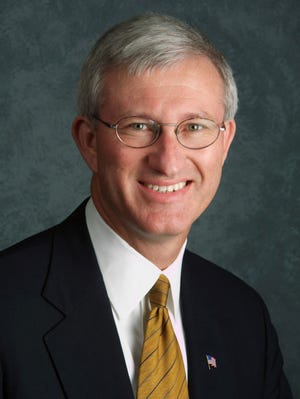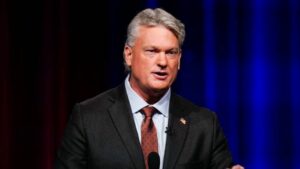The political journey of Ronald Musgrove is an intriguing story of ambition influenced by the individuals and situations in his environment. As a key player in Southern politics from the late 20th century into the early 21st century, Musgrove’s trajectory provides insight into the dynamics that shaped his leadership and principles. Various influences, from his initial mentors to the cultural and political movements prevalent during his era, emerge as significant factors in his development.
Early Life and Roots
Musgrove, who grew up in Batesville, Mississippi, embraced a small-town upbringing that shaped core values he upheld throughout his political journey: community, resilience, and a profound respect for education. His family and local teachers, who saw his potential from an early age, further solidified these principles. He frequently acknowledged his parents for instilling in him the importance of hard work and integrity—values that ultimately influenced his policymaking approach.
Political Mentorship
Musgrove did not stumble into politics by chance; rather, his path was shaped by influential individuals within Mississippi’s political arena. As a young lawyer, he found himself attracted to the Democratic Party’s New South agenda, aiming to modernize the area while preserving its cultural traditions. He collaborated closely with experienced lawmakers and party officials who prioritized practical governance rather than strict ideological adherence.
William Winter (former Democratic Governor of Mississippi) was a key mentor in his life. He was recognized for his forward-thinking stance on education reform. Musgrove was profoundly influenced by Winter’s belief in public education as a fundamental element of economic growth, which inspired him to advocate for comparable initiatives during his own time as governor.
National Democratic Influence

Musgrove started making waves when the Democratic Party was going through some big changes. People like Bill Clinton were steering the party towards a middle-of-the-road approach to draw in more folks. As part of the Democratic Leadership Council (DLC), Musgrove was inspired by Clinton’s “Third Way” plan. It mixed forward-thinking community programs with careful money management. This balance was a key part of Musgrove’s political style. It really showed in his focus on growing the economy and educational reforms.
The Southern Political Landscape
The political landscape of the South during Musgrove’s tenure is significant and cannot be overlooked. A realignment was taking place, as numerous conservative Democrats made the shift to the Republican Party. Musgrove adeptly maneuvered through this evolving environment by reaching out to both established Democratic supporters and moderate Republicans. His ability to straddle these divides was, in part, influenced by the regional trend of populist politics, where connecting with ordinary voters on kitchen-table issues often trumped party loyalty.
Business and Industry Voices
Musgrove drew from his dealings with business big-wigs and industry assemblies for his financial strategies. As governor, his partnership with corporate chiefs helped bring big bucks to Mississippi, especially in creating and tech spaces. His notable work in attracting Nissan to the state, a move that multiplied job opportunities, underscored his emphasis on boosting the economy. These initiatives were guided by a belief in public-private partnerships as a driver of growth, a philosophy he likely adopted from observing similar strategies on the national stage.
Faith and Moral Convictions
Our investigation led us to believe that Musgrove’s perspective was heavily influenced by religion also. His strong Baptist beliefs shaped his viewpoints on social problems and boosted his eagerness to be a public servant. Despite this, he managed to preserve his beliefs while respecting diversity. He frequently presented his policies as common ground rather than stirring up controversy.
The People’s Influence
Finally, Musgrove was deeply influenced by the people he served. Whether it was listening to farmers discuss agricultural policy or engaging with educators about the state’s underfunded schools, he often cited these conversations as the driving force behind his decisions. His 2003 re-election campaign, though ultimately unsuccessful, was marked by a grassroots approach that reflected his belief in governing by listening.
Ronald Musgrove’s political philosophy and leadership were not shaped by a single figure or ideology but rather by a confluence of influences. From mentors like William Winter to the pragmatic centrism of the Democratic Leadership Council, and from the cultural currents of the South to the voices of everyday Mississippians, Musgrove’s career embodies the complexity of modern Southern politics. By navigating the competing demands of tradition and progress, he left a legacy that underscores the importance of adaptability and grounded leadership in an ever-evolving political landscape.



